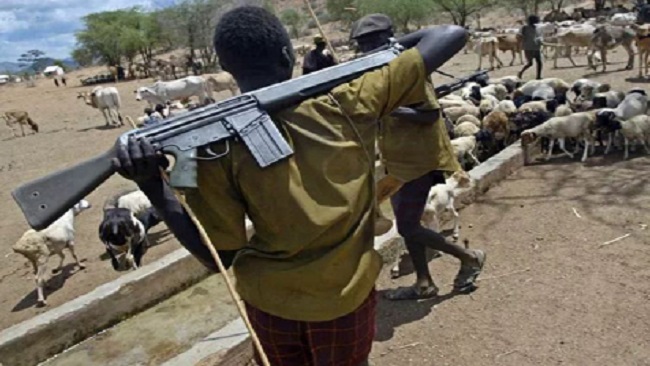13, May 2020
Chinese city in partial lockdown over ‘major risk’ of virus spread 0
A northeastern Chinese city has partially shut its borders and cut off transport links after the emergence of a local coronavirus cluster that has fuelled growing fears of a second wave of infections in China.
Jilin, with a population of more than four million, suspended bus services Wednesday and said it will only allow residents to leave the city if they have tested negative for COVID-19 in the past 48 hours and complete an unspecified period of “strict self-isolation”.
All cinemas, indoor gyms, internet cafes and other enclosed entertainment venues must shut immediately, and pharmacies must report all sales of fever and antiviral medicines, the local government said in a statement.
The city is located in the eponymous province of Jilin.
A cluster of infections was reported in the suburb of Shulan over the weekend, with Jilin’s vice mayor warning Wednesday that the situation was “extremely severe and complicated” and “there is major risk of further spread”.
The city reported six new cases on Wednesday, all linked to the Shulan cluster, bringing the total number of cases linked to a local laundry worker to 21.
Shulan shut down public transportation as well as trains leaving the city on Sunday.
Jilin city, the second-largest in Jilin province, also suspended train services from its main railway station Wednesday morning, state broadcaster CCTV reported.
China has largely brought the virus under control, but it has been on edge about a potential second wave as it has lifted lockdowns and restrictions across the country.
The emergence of new cases in Wuhan in recent days, after weeks without fresh infections, has prompted a campaign to test all 11 million residents in the city where COVID-19 first emerged late last year.
Source: AFP


























13, May 2020
UK in ‘significant recession’ as economy shrinks by record 5.8 percent 0
Britain’s economy shrank by a record 5.8 percent in March as the Covid-19 crisis escalated and the government shut down much of the country, according to official data that point towards an even bigger hit to come.
The monthly drop in gross domestic product was felt in almost all sectors – from the country’s shuttered restaurants and bars to its building sites and factories – and was the largest since comparable records began in 1997.
“The sharp contraction in UK Q1 GDP comes as little surprise, but does clearly highlight the magnitude of the challenge facing policymakers,” JP Morgan market strategist Hugh Gimber said.
In the first three months of the year, GDP contracted by 2.0 percent from the last three months of 2019, the biggest drop since the depths of the financial crisis in late 2008, the Office for National Statistics said.
The Bank of England said last week that the contraction of the economy in the April-June period could approach 25 percent and lead to the largest annual decline in more than three centuries.
British two-year government bond yields sank to a record low of -0.045 percent after the data, reinforcing expectations that the Bank of England will ramp up its record £645 billion (€732 billion) of asset purchases next month.
Finance Minister Rishi Sunak said Britain was now in the midst of a significant recession.
“We have to support people’s jobs, their incomes, livelihoods at this time, and support businesses so we can get through this period of severe disruption and emerge stronger on the other side,” he said after the GDP data.
On Tuesday, Britain’s government extended a costly job support programme for another four months, though businesses will need to pick up more of the tab from August.
The decline in first-quarter GDP was slightly smaller than economists had forecast in a Reuters poll, and less than the 3.8 percent slump suffered by the euro zone in the first quarter.
The worst-hit country in Europe with more than 40,000 deaths from Covid-19 according to official data, Britain has been in extensive lockdown since March 23 – a later date than in many other euro zone countries.
Small steps to ease lockdown
England tentatively began easing its Covid-19 lockdown on Wednesday, with some people who cannot do their jobs at home urged to return to work, while Scotland, Wales and Northern Ireland, which have semi-autonomous governments, are sticking with a “stay at home” message for now.
UK Prime Minister Boris Johnson’s government has faced a barrage of criticism that its new guidance – stay alert, control the virus, save lives – was confusing.
Appearing on Sky News TV, Transport Minister Grant Shapps was asked why estate agents were being allowed to restart house viewings when people could not have their own relatives to visit.
“The truth of the matter is, you have to start somewhere. The lockdown message was very straightforward – it was just stay at home. Now as we start to unlock, of course, there have to be decisions made,” Shapps said.
“There is no perfect way of doing this, and we’d ask people to use their common sense … Right now, there has to be a cut-off somewhere.”
Workers were being advised to avoid public transport if at all possible, and schools remained closed, prompting questions about how parents and people who could not get to work by other means were supposed to apply the new guidance.
Employers faced the daunting task of creating safe environments for their staff, with detailed guidance on one-way systems at entry and exit points and in stairwells, spacing out workstations and other minutiae.
For those still working from home or unable to work, there was only a very slight change in the regime. People were now allowed out to exercise more than once a day, and two people from separate households were allowed to meet outdoors as long as they kept two metres apart.
Martin Hewitt, chairman of the National Police Chiefs’ Council, said officers would still be encouraging people to go home if they were out for reasons other than the authorised exercise, shopping for essentials, health or work.
Fines for transgressions have been increased.
“Everybody will carry on hopefully working in the spirit we’ve had for the last seven weeks,” he told BBC TV.
“It’s not for the police to police people being two metres apart, that’s about everyone’s individual responsibility. If there are those people who refuse to abide by the new regulations then we will move to enforcement if that’s what we have to do,” he said, describing that as a last resort.
(FRANCE 24 with REUTERS)